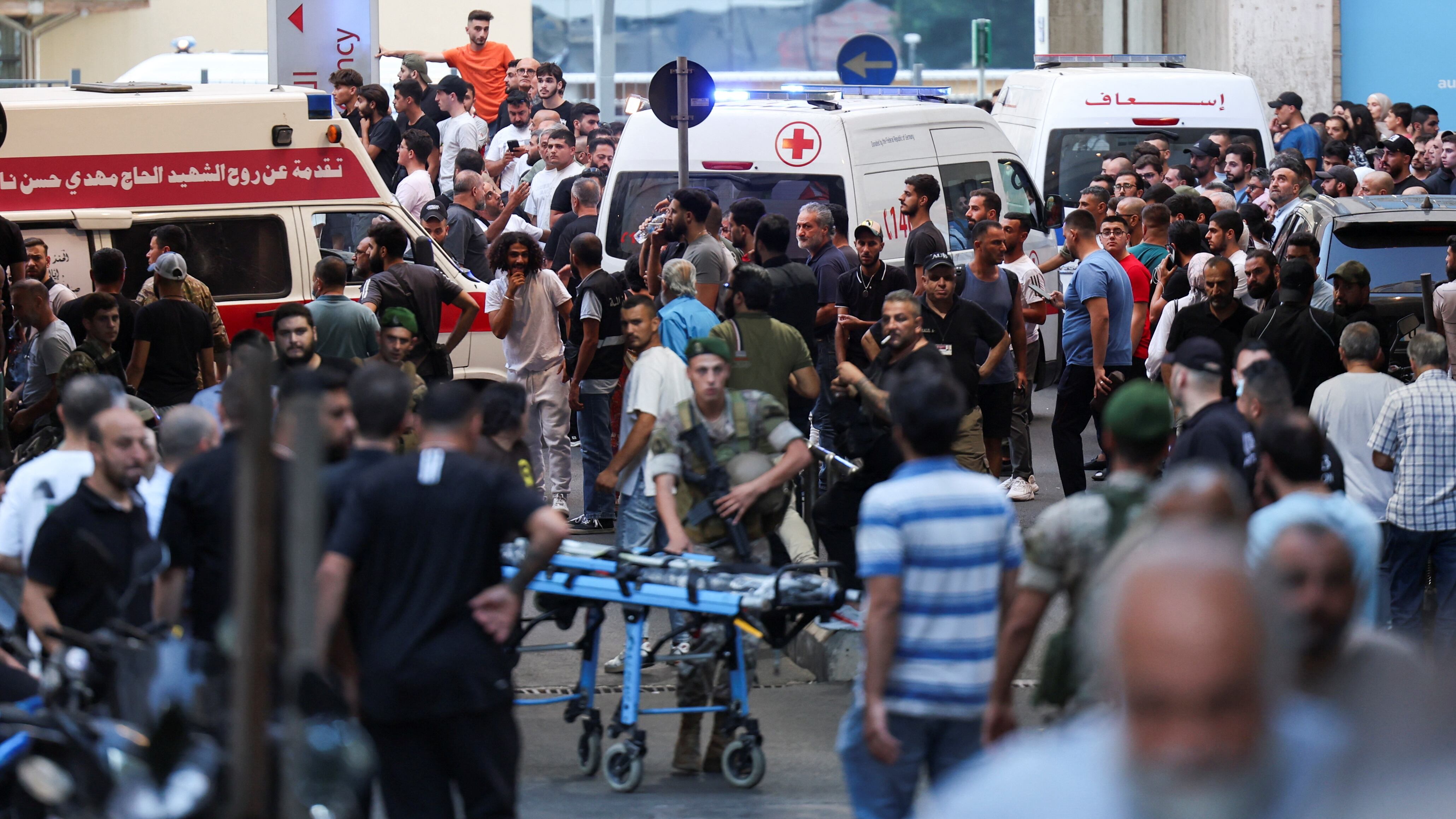
MISSING EYES, GRUESOME WOUNDS: LEBANESE HOSPITALS INUNDATED WITH INJURED AFTER PAGER ATTACK
Live updates: Follow the latest on Israel-Gaza
Hours after pager attacks killed at least nine people, including a child, and wounded thousands others in Lebanon, families anxiously await news of their loved ones outside the American University of Beirut Medical Centre.
A young woman in a black hijab, her eyes wet with tears, discusses her relative’s injuries with a doctor in white coat. Like many that night, she refused to speak more about the incident.
Tension has gripped Beirut after what Hezbollah described as the “largest security breach” the group has faced in almost a year of conflict with Israel. Lebanese caretaker Prime Minister Najib Mikati has blamed Israel for the explosion of pagers, on which Hezbollah relies heavily for communications.
Amid the disruption and heightened security, families and visitors have been barred from the hospital. The army controls the entrance.
Amal, 54, who introduced herself as the mother of a “martyr” as she showed a picture of her son who had died fighting for Hezbollah, is more talkative than others.
Amal was waiting for news of her brother and cousins, who are in surgery. She said she initially went to Bahman hospital, another medical centre in Beirut, but her relatives, who suffered critical facial injuries, were sent to the AUBMC.
What she saw in Bahman was straight out of a film, she told The National: “There was blood everywhere, people without eyes, holes in their back and their hands covered in blood.”
Amal insisted that she was not afraid. “Scenes like this make us stronger,” she said. “Our wounded will come back stronger to fight Israel. And if they don’t, it will still be fine. We were expecting this kind of things as we are at war. But we will stay on our land, no matter the cost.”
There is similar chaos at Bahman hospital in Dahieh, a few metres from where Fouad Shukr, a senior Hezbollah commander, was killed in July.
Families of patients and residents who are waiting to donate blood crowd the entrance. The atmosphere is tense in this neighbourhood, where Hezbollah holds sway.
“I just want to see him; I travelled from the south of Lebanon to see him,” one man begged a soldier at the entrance. But no one is being allowed inside, and journalists are not allowed to film.
A few moments later, a man stumbled out of the hospital with white gauze wrapped around his head, accompanied by family members. He had been discharged, but a dozen wounded are still inside, undergoing crucial operations as the wail of sirens continues to echo through Beirut hours after the attack.
The night is going to be a long one.
2024-09-17T20:49:16Z dg43tfdfdgfd